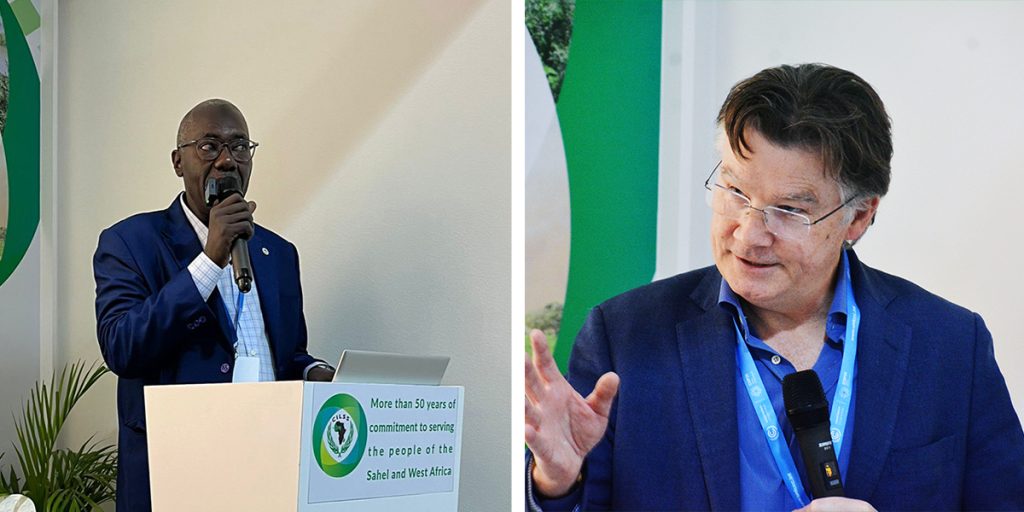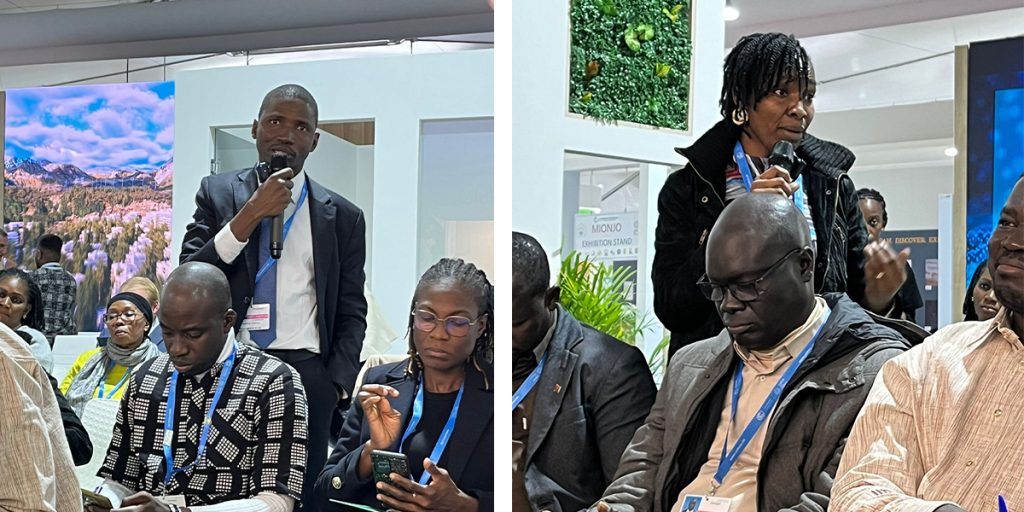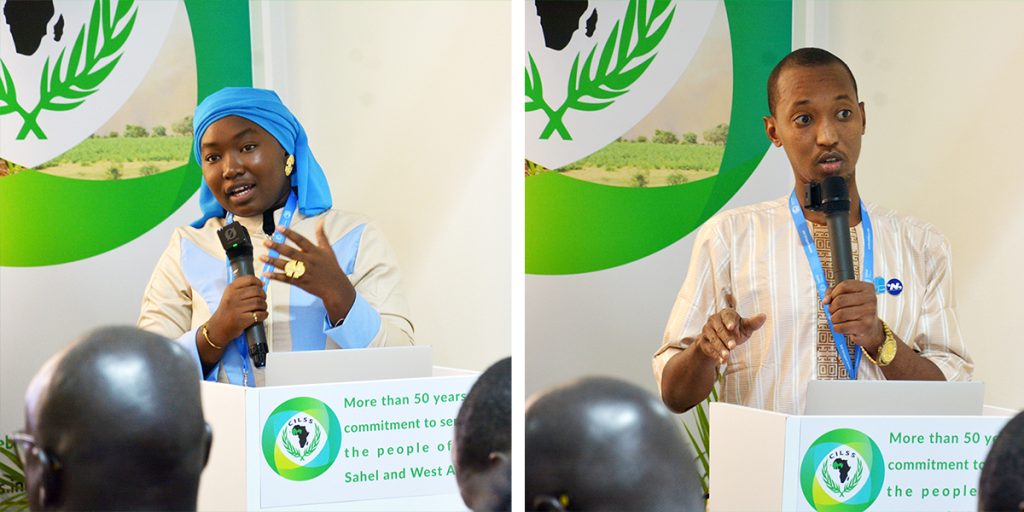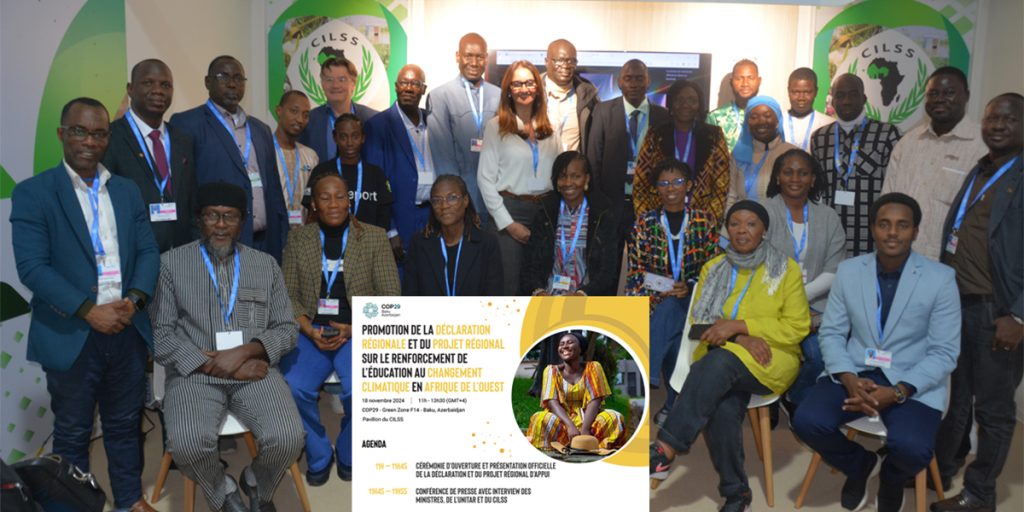Climate Education is seen as a pivotal element by the Sahelian states in the fight against the climate crisis. In 1973, this region faced a major drought, affecting tens of millions in an event that was, to some extent, the harbinger of the extreme events that we now see in all regions of the world.
On November 18, 2024, at COP29 in Baku, the Permanent Interstate Committee for Drought Control in the Sahel (CILSS) and UNITAR co-hosted an event to highlight the importance of building societal resilience through climate change education across West Africa and to publicize a newly minted regional Declaration.
High-level speakers included Mr. Kada Ballah, Minister Coordinator of CILSS, Mr. Angus Mackay, Director of UNITAR, and Mr. Gilberto Silva, Minister from Cabo Verde, and the Deputy Executive Secretary of the CILSS . Mr Mackay asked in his remarks:
“In a world where citizens are increasingly losing their assets and livelihoods to extreme events, how aware of the risks are these victims in advance of such events, and how might they be better prepared through better education?”

Mr. Sanoussi Atta, Director for training at AGRHYMET, and Mr. Angus Mackay, Director of the Division for Planet at UNITAR. Photo Credit: CILSS and UN CC:Learn
A new Regional Project for the implementation of the Declaration was presented to accelerate climate knowledge and skills for children, youth, and women. The initiative aims to empower communities, enhance public participation, and drive policy innovation through strengthened climate-sensitive education.
The panel discussion was vocal and interactive, delving into the challenges and opportunities in advancing climate education. For example, youth leaders called unequivocally for more support for teachers and for general education. On the issue of financing, it was recognized that countries themselves need to allocate their own funds alongside international sources. On the issue of adaptation financing (a key priority for COP 29), several speakers highlighted the very limited proportion of this funding being channeled towards education and that this undermined the overall effectiveness of adaptation measures.

Participants exchanged during the panel. Photo Credit: UN CC:Learn

Youth representatives from Senegal and Mali spoke at the event during the panel. Photo Credit: UN CC:Learn
The event concluded with renewed commitments to the Declaration and calls for expanded partnerships to implement the Regional Project. By amplifying education efforts, the initiative underscores West Africa’s dedication to tackling climate change through knowledge and action.

Panel discussion at the event. Photo Credit: CILSS

Group photo at the event. Photo Credit: CILSS
